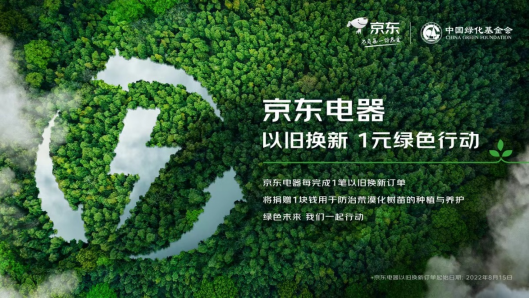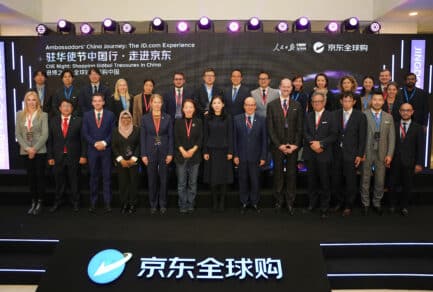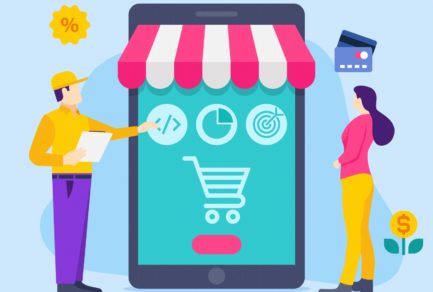Aug 16, 2022|
For Each Trade-In Order of Electronic Products, JD Matches 1 Yuan to Tree Planting
by Vivian Yang
JD.com and China Green Foundation jointly announced a charitable project on August 11th, through which the e-commerce company will contribute RMB 1 yuan to the Foundation’s tree-planting plan every time an electronics product is ordered via JD’s trade-in service, starting from the 15th this month.

Cell phones, digital, home appliances and other electronic products are all included in this campaign. Consumers can recycle used devices for new electronics at favorable prices through JD’s trade-in program, and the aggregate orders will become the sum amount of donation from JD.com, funding the next spring’s planting of wolfberry saplings in Ningxia Hui Autonomous Region.
Chinese wolfberries are a specialty in Ningxia in north-central China and can grow in local deserts to shield sands and tame desertification.
Recycling e-waste has become an imminent task in China. An alarming estimation by the National Development and Reform Committee said that the amount of electronic waste in this country averages 100-120 million items a year and it will reach a peak of 137 million in 2022. This “1 Yuan Green Initiative” is concrete action from JD.com, as China’s leading retailer of electronic products, to combat the challenge.
Statistics also show that the power use of household appliances account for 11.3 percent of the national electricity consumption, and about 30 percent of residents’ carbon emissions come from household appliances.
Trading in a refrigerator can cut carbon emissions by 30 kilograms, according to the Beijing Green Exchange. Meanwhile, a tree can absorb an average of about 10 kilograms of CO2 per year, meaning one such trade-in order can save the work of three trees for a whole year.
To encourage carbon reduction from the consumer end, JD.com also introduced the “Green Impact Initiative” this May in which one million different kinds of products on JD.com now have been screened for environmentally-friendly standards and green-labeled, making it easier for the platform of over 580 million consumers to reach greener products.

 JD.com’s Sports Consumption Sees More Bike Lovers
JD.com’s Sports Consumption Sees More Bike Lovers



